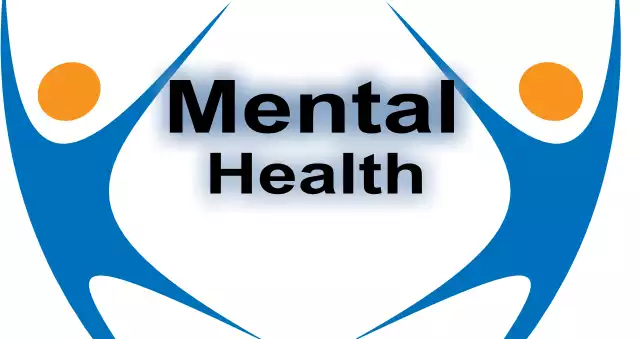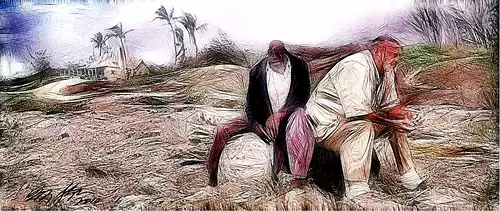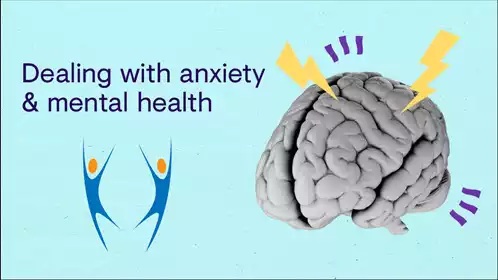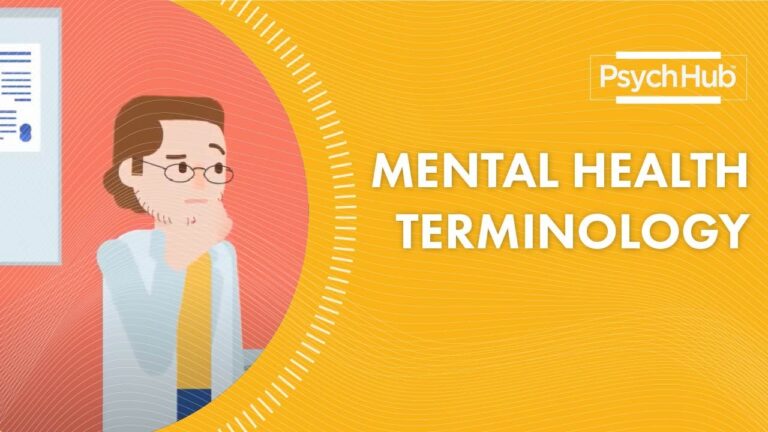Recreational Therapy In Mental Health
Imagine a world where your path to mental well-being is paved not just with counseling sessions or medications, but with art classes, nature hikes, and team sports.
Welcome to the transformative realm of Recreational Therapy in Mental Health.
This innovative approach goes beyond conventional treatments by harnessing the healing power of leisure activities and creative outlets.
It’s more than just fun and games; it’s a scientifically-backed method that can significantly enhance emotional resilience, social skills, and overall quality of life.
For many individuals grappling with mental health challenges, traditional therapy methods may feel daunting or ineffective on their own.
Recreational therapy offers an engaging alternative that encourages active participation while fostering a sense of fulfillment and joy.
Through structured recreational activities tailored to individual needs, participants can rediscover what it means to truly live rather than merely exist.
Join us as we delve into how this dynamic field is revolutionizing mental health care, one joyful activity at a time.
Recreational therapy, also known as therapeutic recreation, has become a widely recognized and effective approach in the field of mental health treatment.
This specialized form of therapy utilizes leisure and recreational activities to help individuals cope with and overcome mental health issues.
It focuses on promoting physical, emotional, and social well-being through engaging in purposeful and enjoyable activities.
While traditional forms of therapy such as talk therapy and medication are still widely used, recreational therapy offers a unique and holistic approach to mental health treatment.
It recognizes the importance of incorporating fun and meaningful activities into one’s life in order to improve overall mental health and quality of life.
In this article, we will explore the various benefits of recreational therapy in mental health, its history, and how it is being used in different settings.
Whether you are a mental health professional, someone seeking therapy, or simply interested in learning more about this innovative form of treatment, this article will provide valuable insights and information on recreational therapy in mental health.
Table of Contents Recreational Therapy In Mental Health
Role of recreational therapy in mental health
Utilizing recreational therapy as a valuable tool in addressing mental health concerns has gained recognition within the field of mental health treatment.
By incorporating a range of recreational activities into therapy sessions, individuals are provided with opportunities for self-expression, skill development, and social interaction.
These activities, tailored to meet the specific needs and interests of each individual, have been shown to contribute to improved emotional well-being, increased self-esteem, and enhanced overall mental health.
By engaging in activities such as art therapy, music therapy, outdoor adventures, and sports, individuals can experience a sense of purpose, enjoyment, and a renewed sense of hope.
The role of recreational therapy goes beyond mere leisure activities, as it serves as a powerful therapeutic intervention that supports individuals in their journey towards improved mental health and overall well-being.
Evidence-based techniques for improvement
In the realm of recreational therapy in mental health, it is essential to incorporate evidence-based techniques for improvement.
These techniques are grounded in rigorous scientific research and have been proven effective in promoting positive outcomes for individuals struggling with mental health conditions.
One such technique is cognitive-behavioral therapy (CBT), which focuses on identifying and challenging negative thought patterns and replacing them with more positive and adaptive ones.
CBT has shown significant success in reducing symptoms of depression, anxiety, and other mental health disorders.
Another evidence-based technique is mindfulness-based stress reduction (MBSR), which involves cultivating a non-judgmental awareness of the present moment.
MBSR has been associated with reduced stress, improved emotional regulation, and increased overall well-being.
By incorporating these evidence-based techniques and others like them, recreational therapy professionals can provide individuals with effective tools for personal growth and mental health enhancement.
Promoting physical and mental well-being
As professionals in the field of recreational therapy in mental health, our primary goal is to promote physical and mental well-being for individuals experiencing mental health challenges.
Through a holistic approach, we aim to address the interconnectedness of physical and mental health, recognizing the reciprocal relationship between the two.
By incorporating physical activities, such as exercise and sports, we not only enhance physical fitness but also stimulate the release of endorphins, the body’s natural mood-boosting chemicals.
Additionally, engaging in recreational activities provides opportunities for social interaction and connection, fostering a sense of belonging and reducing feelings of isolation.
Moreover, mindfulness practices, such as meditation and relaxation techniques, are incorporated to cultivate self-awareness, reduce stress, and improve emotional regulation.
By promoting physical and mental well-being through evidence-based interventions, we strive to enhance the overall quality of life for individuals seeking therapeutic support.
Creative outlets for self-expression
Through the integration of creative outlets for self-expression, we further enhance the therapeutic benefits of recreational therapy in mental health.
Engaging in artistic activities, such as painting, drawing, or sculpting, allows individuals to channel their emotions and thoughts into tangible forms of expression.
This process not only provides a sense of catharsis but also serves as a means of communication, enabling individuals to convey their innermost thoughts and feelings that may be difficult to express verbally.
Additionally, creative outlets foster a sense of empowerment, as individuals discover their unique talents and abilities.
Whether it is writing, playing a musical instrument, or engaging in performing arts, these activities provide a platform for personal growth, self-discovery, and a renewed sense of purpose.
Overall, incorporating creative outlets into recreational therapy offers a valuable avenue for individuals to explore and express their authentic selves, contributing to their overall mental well-being and recovery journey.
Building social skills and confidence
Developing strong social skills and confidence is a fundamental aspect of recreational therapy in mental health.
Engaging in group activities and interactive games provides individuals with opportunities to practice effective communication, active listening, and teamwork.
These experiences foster a sense of belonging and social connection, allowing individuals to develop meaningful relationships and build a support network.
Through structured social interactions and guided discussions, individuals can also learn essential skills such as assertiveness, conflict resolution, and empathy.
By actively participating in social activities within a therapeutic setting, individuals can gradually increase their confidence, improve their self-esteem, and gain a greater sense of social competence.
These acquired skills can then be transferred to real-life social interactions, leading to improved relationships, increased social engagement, and a greater overall sense of well-being.
Tailoring activities to individual needs
In the field of recreational therapy in mental health, it is crucial to tailor activities to the individual needs of each participant.
By taking into consideration their unique interests, preferences, abilities, and therapeutic goals, recreational therapists can create personalized experiences that promote optimal engagement and progress.
This individualized approach allows for a customized and meaningful experience for each participant, ensuring that the activities chosen are not only enjoyable but also address specific areas of improvement.
By adapting and modifying activities based on the individual’s cognitive, physical, and emotional capabilities, therapists can provide a supportive and inclusive environment that enhances the therapeutic benefits.
Additionally, tailoring activities to individual needs fosters a sense of empowerment, as participants feel seen, heard, and valued within the therapeutic process.
Incorporating therapy into daily routines
Taking therapy beyond the confines of formal sessions and incorporating it into daily routines can bring about significant benefits in mental health.
By integrating therapeutic techniques and strategies into everyday activities, individuals can reinforce and extend the progress made during therapy sessions.
This can be achieved through various approaches, such as journaling, mindfulness exercises, creative outlets, and self-reflection practices.
Engaging in these activities regularly allows for continuous self-awareness, emotional regulation, and personal growth.
It also provides individuals with a sense of empowerment and control over their mental well-being, as they actively participate in their own healing process.
By making therapy a part of their daily routines, individuals can cultivate a consistent and sustainable approach to maintaining their mental health.
Enhancing overall quality of life
The incorporation of recreational therapy in mental health goes beyond alleviating symptoms and focuses on enhancing the overall quality of life for individuals.
By engaging in recreational activities tailored to their specific needs and interests, individuals can experience a range of positive outcomes.
These activities promote social interaction, fostering meaningful connections and reducing feelings of isolation.
Moreover, participating in enjoyable and fulfilling activities can boost self-esteem and confidence, leading to a greater sense of purpose and satisfaction in life.
Recreational therapy also serves as a valuable tool for stress reduction and emotional well-being, allowing individuals to find joy and relaxation in their daily lives.
Ultimately, by prioritizing the integration of recreational therapy, individuals can cultivate a more balanced, fulfilling, and enriched existence.
In summary, recreational therapy is a valuable and effective treatment option for individuals struggling with mental health issues.
With its focus on holistic wellness and personalized activities, it offers a unique approach to healing and recovery.
As professionals in the field, it is our duty to continue promoting and advocating for the use of recreational therapy in mental health, ensuring that individuals receive comprehensive and individualized care for their mental well-being.
Let us continue to recognize the importance of recreational therapy and its positive impact on individuals’ lives.
FAQ
How does recreational therapy benefit individuals with mental health disorders?
Recreational therapy benefits individuals with mental health disorders by providing opportunities for social interaction, physical activity, and creative expression.
Engaging in recreational activities can help reduce symptoms of depression, anxiety, and stress, improve self-esteem, and enhance overall well-being.
It also promotes a sense of accomplishment, builds coping skills, and fosters a sense of community and belonging.
By focusing on leisure and enjoyable activities, recreational therapy offers a holistic approach to mental health treatment that addresses the physical, emotional, and social aspects of individuals’ lives.
What types of activities are commonly used in recreational therapy for mental health patients?
Recreational therapy for mental health patients often includes activities such as art therapy, music therapy, dance/movement therapy, outdoor activities, sports, games, and relaxation techniques like mindfulness and yoga.
These activities help promote self-expression, social interaction, physical wellness, emotional regulation, and overall mental well-being in individuals with mental health challenges.
Engaging in these activities can enhance mood, reduce stress, improve coping skills, and foster a sense of accomplishment and enjoyment, ultimately supporting the therapeutic process and overall mental health recovery.
How does recreational therapy help improve social skills and relationships for individuals with mental health challenges?
Recreational therapy helps improve social skills and relationships for individuals with mental health challenges by providing structured activities that promote social interaction, communication, teamwork, and problem-solving.
Through participation in these activities, individuals can develop confidence, build trust, and strengthen interpersonal connections, leading to improved social functioning and healthier relationships.
Additionally, recreational therapy offers a supportive environment for individuals to practice and apply these skills in real-life situations, providing opportunities for personal growth and meaningful engagement with others.
What role does recreational therapy play in promoting physical health and wellness for those with mental health disorders?
Recreational therapy plays a crucial role in promoting physical health and wellness for individuals with mental health disorders by providing opportunities for physical activity, social interaction, and stress reduction.
Engaging in recreational activities tailored to their interests and abilities can help improve physical fitness, enhance mood, reduce anxiety, and boost self-esteem.
Additionally, participation in such activities can aid in developing coping skills, promoting a sense of accomplishment, and fostering a healthy lifestyle, ultimately contributing to overall well-being and recovery for individuals with mental health disorders.
How can recreational therapy be integrated into a comprehensive treatment plan for individuals with mental health issues?
Recreational therapy can be integrated into a comprehensive treatment plan for individuals with mental health issues by providing structured, enjoyable activities that promote physical, emotional, and social well-being.
These activities can help individuals build coping skills, improve self-esteem, reduce symptoms of depression and anxiety, and increase overall quality of life.
Incorporating recreational therapy alongside traditional therapies such as counseling and medication can create a holistic approach to mental health treatment that addresses the individual’s needs on multiple levels.
This integration can enhance treatment outcomes and support long-term mental wellness.







